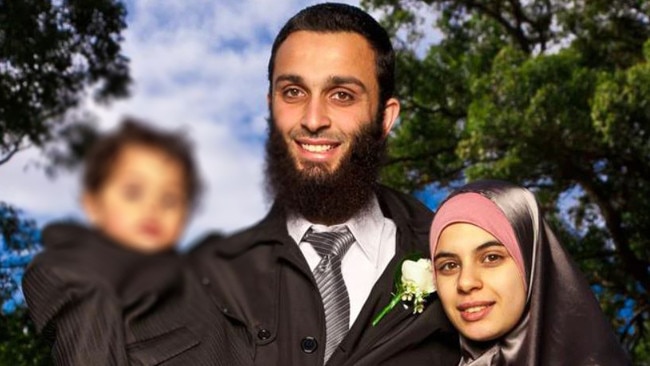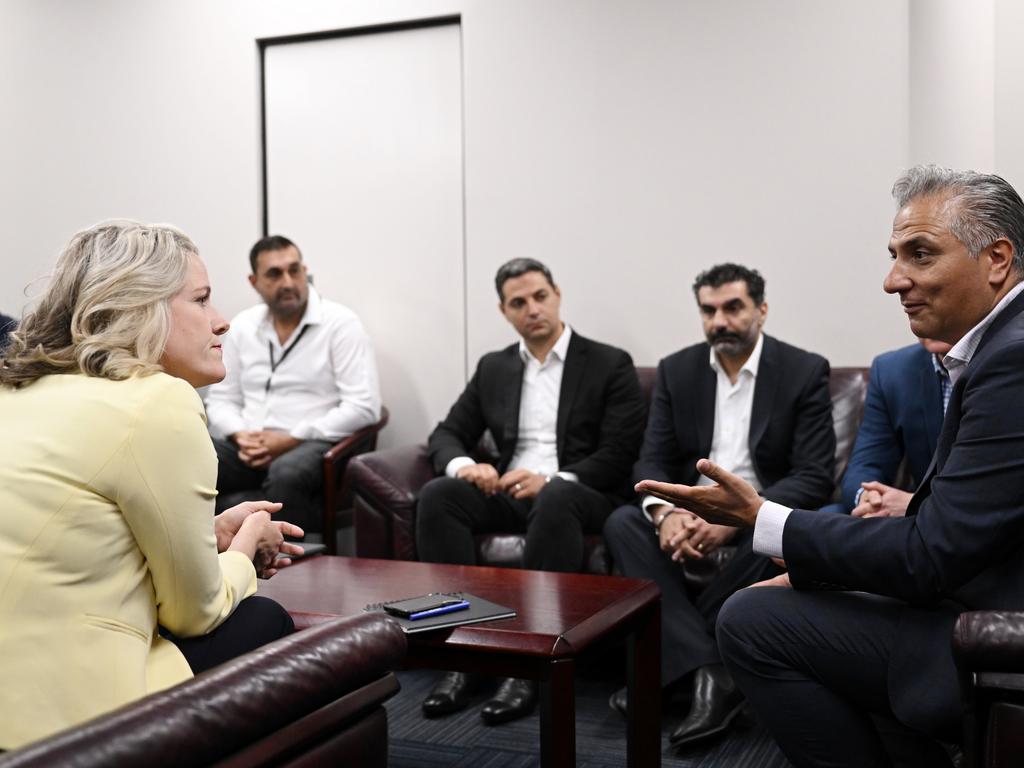Repatriated ISIS bride arrested and to face court
Police allege the wife of ISIS’s star Australian recruiter travelled to Syria willingly and was aware of her husband’s activities.

Police allege the wife of ISIS’s star Australian recruiter travelled to Syria willingly and was aware of her husband’s activities, charging the 31-year-old with the serious offence of entering an area controlled by the terror group.
One of the so-called “ISIS brides”, Mariam Raad had been under close surveillance by police and security agencies since being repatriated from Syria in October. Ms Raad has been living in Young, in south central NSW.
She has four children by maths teacher turned ISIS recruiter Muhammad Zahab.
Zahab, who rose to become ISIS’s most senior Australian fighter, convinced dozens of relatives to join him in Syria. He is believed to have been killed in an air strike in 2018.
Australian Federal Police and NSW Police investigators from the NSW Joint Counter Terrorism Team arrested Ms Raad on Thursday after executing search warrants in Young and Parklea, and charged her with entering a declared area, believed to be the Syrian city of Raqqa. The offence carries a maximum penalty of 10 years’ imprisonment.
“It will be alleged in court that the woman travelled to Syria in early 2014 to join her husband, who left Australia in 2013 and joined Islamic State,” AFP and NSW Police said in a joint statement.
“It will also be alleged the woman was aware of her husband’s activities with Islamic State, and willingly travelled to the conflict region.”
JCTT officers have been investigating Ms Raad since she left for Syria in what they have described as a “complex and long-term investigation”.
The officers will also allege that “newly obtained evidence enabled the JCTT to charge the woman”. Ms Raad has been refused bail and is due to face Wagga Wagga Local Court on Friday.
Other members of the group of 17 women and children repatriated last year may also be charged, The Australian understands.
Ms Raad and her children – two boys born in Australia and two girls born in Syria – spent three years in refugee camps in northeast Syria.
In an interview with The Australian at the al-Roj Internally Displaced Persons camp near the Iraqi border in July last year, Ms Raab pleaded to be allowed to return to Australia, saying one of her daughters had severe developmental problems and had not received any diagnosis.
“I want my kids to have a chance at a real future,” she said. “I want them to start their education and I want to know what’s wrong with my daughter.
“I’m stressed. It’s not easy being a single mother with four children in a camp. The boys are growing older and I go to sleep every night imagining they will be taken away from me.’’
She said she posed no threat to Australia.
“My goal if I go back to Australia, I want to be a working mother and I want my kids to have an education, I want to put my kids in schools, to be educated, and to be smart.”
While the AFP and JCTT have assured the public there were no current or impending threats, AFP Acting Assistant Commissioner Counter Terrorism and Special Investigations Command Sandra Booth said the JCTT would continue to investigate Australians returning from declared conflict areas to ensure the safety of the Australian community.
“Individuals will be brought before the courts when evidence supports allegations that returned individuals have committed offences in conflict areas,” Assistant Commissioner Booth said.
“The JCTT will continue to target criminal activity and does not target specific ideologies or beliefs.”
NSW Police Counter Terrorism and Special Tactics Commander, Assistant Commissioner Mark Walton said: “We have zero tolerance for Australians – or anyone – who seek to commit acts of violence or extremism, and those considering doing the wrong thing will come under our notice.
“Our investigators methodically gather information and evidence, conduct surveillance and work tirelessly to target criminal activities which pose a threat to the Australian community.”
Western Sydney locals told The Australian that while the fate of Ms Raad would now rest in the hands of Australia‘s judiciary, her children should not have to suffer.
“A lot of these women came with children … but the reality is without parents, children are left to go in the floods,” said Lakemba local Ahsan Farazi, 63, an aircraft engineer.
“They don’t have any direction unless someone helps them.”
Mr Farazi said while many in the Muslim community would rather not think about the return of the ISIS brides, the community could not live “in a dream land”.
“As a believer we cannot run away from the facts and we have to accept the facts,” he said.
“The Australian law (will judge Ms Raad) in the name of protecting the country against terrorism … and the Muslim community will have to be respectful of that.”
Yasmeen Shadid, 18, said there was a responsibility on the Australian government and community to ensure Ms Raad’s children were raised by “a good family”.
“I really do hope they go with a good family, and not just a good family but a good Muslim family,” she said. “They should be able to see how everyday Australian Muslims live.”






